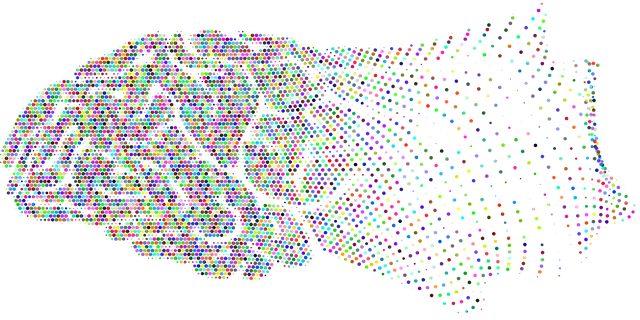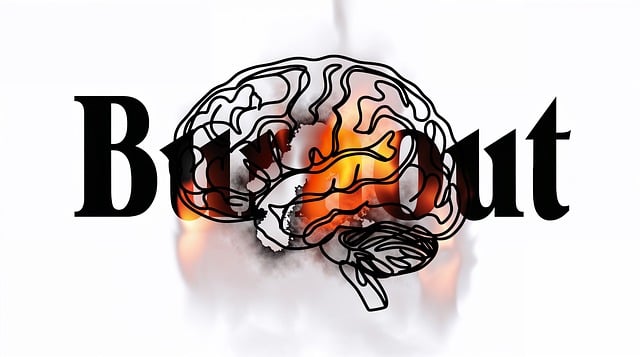Emotional Intelligence (EI) is a key component of Centennial Neuro Disorders Therapy, focusing on healthy emotion management and response. This goes beyond emotional awareness, encompassing self-regulation, empathy, and social awareness. Public Awareness Campaigns normalize conversations about emotions, promoting understanding and connection. Depression Prevention and Anxiety Relief initiatives address the impact of genetic predispositions and environmental stressors on emotional regulation. Centennial Neuro Disorders Therapy offers specialized support targeting neurobiological mechanisms behind emotional dysregulation, while Public Awareness Campaign Development destigmatizes mental health issues, fostering early intervention and enhanced well-being. Building EI through CNDT equips individuals with tools to navigate challenges, start with self-care practices, build resilience, and improve relationships, ultimately enhancing life quality. Continuous cultivation of EI offers significant benefits for managing Centennial Neuro Disorders or mental health challenges.
Emotional intelligence (EQ) is a powerful tool for navigating life’s complexities, fostering healthy relationships, and achieving personal growth. This article explores the multifaceted concept of EQ, delving into its core components and significance in daily living. We examine how centennial neuro disorders impact emotional regulation, offering therapeutic approaches to build resilience and self-awareness. Additionally, practical strategies are provided to enhance EQ, including tips for cultivating emotional intelligence in everyday life, emphasizing the transformative power of Centennial Neuro Disorders Therapy.
- Understanding Emotional Intelligence: A Fundamental Concept
- The Role of Centennial Neuro Disorders in Emotional Regulation
- Strategies for Enhancing EQ in the Face of Challenges
- Therapeutic Approaches to Build Resilience and Self-Awareness
- Practical Tips for Daily Life: Cultivating Emotional Intelligence
Understanding Emotional Intelligence: A Fundamental Concept

Emotional intelligence (EI) is a fundamental concept that involves recognizing, understanding, managing, and effectively utilizing one’s own emotions and those of others. It transcends mere emotional awareness; it encompasses skills like self-regulation, empathy, and social awareness. EI isn’t just about feeling emotions; it’s about responding to them in healthy, constructive ways. This is particularly relevant in the context of Centennial Neuro Disorders Therapy, where helping individuals navigate and manage their emotional responses is a core component of treatment.
The development of emotional intelligence involves learning effective communication strategies that promote understanding and connection with others. Public Awareness Campaigns Development plays a crucial role in fostering this by shedding light on the benefits of EI and normalizing open discussions about emotions. By integrating these Communication Strategies, individuals can build stronger relationships, improve their mental health, and enhance overall well-being.
The Role of Centennial Neuro Disorders in Emotional Regulation

Centennial neuro disorders, such as depression and anxiety, play a significant role in emotional regulation within our society. These conditions, often stemming from complex interactions between genetic predispositions and environmental stressors, can profoundly impact an individual’s ability to manage and express emotions effectively. Depression Prevention and Anxiety Relief efforts are essential components of addressing these challenges.
Through Centennial Neuro Disorders Therapy, individuals have access to specialized support that targets the underlying neurobiological mechanisms contributing to emotional dysregulation. Public Awareness Campaigns Development has been instrumental in destigmatizing mental health issues, encouraging open dialogue, and fostering environments conducive to early intervention. This approach not only enhances coping strategies but also promotes overall well-being, aiming to mitigate the impact of these disorders on daily life.
Strategies for Enhancing EQ in the Face of Challenges

Emotional intelligence (EQ) is a vital tool for navigating life’s challenges. When faced with adversity, adopting certain strategies can significantly enhance one’s EQ. Centennial Neuro Disorders Therapy emphasizes the importance of self-awareness and emotional regulation as key components of building resilience. Through tailored interventions, individuals learn to identify and manage their emotions effectively, fostering a sense of control amidst turmoil.
One effective approach is integrating stress reduction methods, such as mindfulness and deep breathing exercises, into daily routines. These practices not only help in the moment but also contribute to long-term coping skills development. Additionally, cultivating a strong support system and engaging in open communication can provide a safety net during challenging times. Embracing the Mind Over Matter principles allows individuals to reframe perspectives, fostering adaptability and a positive outlook—essential elements for overcoming obstacles and bolstering emotional intelligence.
Therapeutic Approaches to Build Resilience and Self-Awareness

Building emotional intelligence involves therapeutic approaches that foster resilience and self-awareness. Centennial Neuro Disorders Therapy (CNDT) offers a powerful framework for navigating internal landscapes and external challenges. Through CNDT, individuals learn to identify and manage their emotions effectively, enhancing their ability to cope with stress and adversity. This process begins with cultivating self-care practices that nurture mental well-being, enabling better regulation of mood and emotional responses.
Resilience building is a core component of CNDT, teaching individuals strategies to bounce back from setbacks and maintain a sense of equilibrium. By integrating these therapeutic techniques into daily routines, people can strengthen their emotional intelligence, improve relationships, and enhance overall quality of life. Mood management becomes more accessible as individuals gain insights into their emotional triggers and learn adaptive coping mechanisms.
Practical Tips for Daily Life: Cultivating Emotional Intelligence

Cultivating emotional intelligence (EI) is a journey that requires consistent practice and patience. It’s an essential tool for navigating life’s challenges and fostering healthy relationships, making it particularly beneficial for individuals dealing with Centennial Neuro Disorders or other mental health conditions. Practical tips to enhance EI in daily life include mental wellness journaling as a way to reflect on emotions and gain insights. This practice allows for emotional awareness, enabling better understanding of triggers and patterns. Regular self-care practices, such as mindful breathing exercises or engaging in hobbies that bring joy, can significantly improve emotional regulation skills.
Additionally, seeking guidance from therapists or coaches specializing in EI development can provide tailored strategies to cope with difficult emotions. By integrating these techniques into routines, individuals can enhance their ability to recognize and manage their feelings, leading to improved decision-making and enhanced relationships, both personally and professionally.
Emotional intelligence, a key component of overall well-being, can be cultivated through understanding and implementing various strategies. While challenges like Centennial Neuro Disorders may impact emotional regulation, therapeutic approaches exist to build resilience and self-awareness. By integrating practical tips into daily life, individuals can enhance their EQ, fostering healthier relationships and improved mental health outcomes, even in the face of neurodivergent conditions. Remember, the journey to emotional intelligence is ongoing, offering profound benefits for personal growth and social connections.










